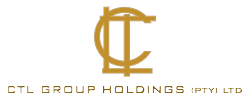15 JANUARY 2025 IS THE EMPLOYMENT EQUITY CUT OFF DATE

Big changes for South African companies with over 50 employees
South Africa’s Employment Equity Amendment Act No.4 of 2022 (EEAA) came into operation on 1 January 2025, with big changes for companies that employ over 50 people.
The new laws were signed into law by President Cyril Ramaphosa in April 2023 but took some time to be implemented amid widespread backlash.
Although some of these changes are likely to impact all employers, most of the changes are specific to employers with more than 50 employees, called designated employers.
The most noteworthy among the amendments allow the Minister of Employment and Labour to set numerical targets for the 18 different sectors identified by the Minister.
The amendments will introduce sectoral numerical targets to ensure that there is equitable representation of historically disadvantaged groups based on race, gender, and disability at all occupational levels in the workforce.
Once the laws are enforced designated employers will need to comply with these sectoral targets.
Although two separate and incredibly different draft regulations setting out the proposed sectoral targets have already been published, the Minister is yet to issue a final version of such regulations.
This has led to some fears and concerns amongst the various sectors.
Several other notable amendments which will come into effect as of 1 January 2025 include:
· Employers who employ less than 50 employees will no longer be considered to be designated employers, regardless of the employer’s annual turnover (previously employers who employed less than 50 employees but whose annual turnover exceeded a specific threshold set out in Schedule 4 to the EEA, were designated employers). Consequently, schedule 4 of the EEA has been repealed;
· The definition of ‘people with disabilities’ has been extended to include people with intellectual or sensory impairments which may limit their prospects of entry into, or advancement in, employment;
· Psychometric testing of employees or applicants for employment is no longer required to be certified by the Health Professionals Council of South Africa or a similar body, for same to be permitted for use;
· The EEA2 reports no longer need to be signed by the Chief Executive Office of a designated employer;
· In assessing a designated employer’s compliance with its obligations, a designated employer’s compliance with sectoral targets set by the Minister may be taken into account;
· Section 53 of the EEA (which is not yet in effect) requires designated employers who intend to conclude agreements with an organ of state for the furnishing of supplies or services, to be in possession of a certificate confirming that they comply with their obligations in terms of the EEA.
o A certificate may only be issued if, inter alia, the designated employer has complied with the sectoral targets, unless there is a reasonable justification for any failure to comply with such targets. As such, under the dispensation of the EEAA, designated employers who fail to comply with the sectoral targets could be precluded from conducting business with the government.
